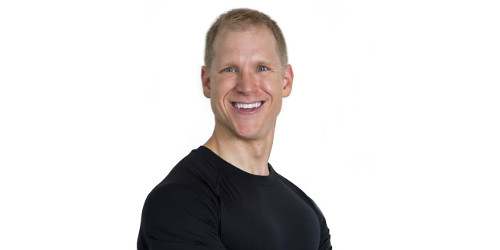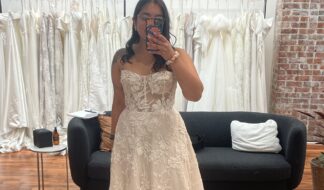MARK THIESMEYER, MS, MPH, RD

Mark Thiesmeyer, MS, MPH, RD
The stereotype of gay men being obsessed with our appearance aside, it's a sad fact that LGBTQ people as a whole are at greater risk for eating disorders. LGBTQ individuals are also more likely to experience body dysmorphic disorder (BDD).
And as we all know, the gym is one of the first stops people make when we're trying to improve the way we feel about our bodies. But while some fitness centers and gyms certainly help clients recover from these issues, others can actually make the problem worse – and some places even promote unhealthy approaches to fitness.
Fortunately, once you know what to look for it's fairly easy to determine whether any given fitness center is going to be helpful or hurtful. Here are some tips to help, whether you want to evaluate your current gym or you're in the market for a new fitness center: Where's the scale? I once worked out in a fitness center that had a huge scale right in the middle of the workout room. Checking your weight there was practically a public event. Scale placement isn't just a matter of protecting clients' privacy – it can also tell you a lot about whether weight loss for its own sake is a high priority at a given gym.
Look at what the staff members are wearing. If the men are all in muscle shirts and the women are wearing nothing but tights and sports bras, that may be a sign that this fitness center is focused on achieving the kind of supposedly ideal body that most of us will never have.
How many mirrors are there? This factor can be a bit tricky to evaluate, because correctly-placed mirrors are essential for helping people check for proper form as they exercise. If there are so many mirrors that you feel like you're in a clothing store fitting room, though, that could indicate that the business is focused more on your appearance than your health.
Pay attention to how the fitness center talks about itself and its clients. Is the gym's website all about creating six-pack abs? Does the fitness center offer classes designed to promote overall health – including things like cardio fitness, strength, balance, and flexibility – or are many, or even most, of the sessions entirely focused on weight loss? Are the trainers open to whatever a clients' individual goals may be, or does this gym encourage all of its members to measure their progress solely in terms of their measurements?
Finally, take a look at the other clients. Do you see people of diverse ages and body types, or do you feel like you've walked into a Baywatch rerun? A diverse membership is a good sign that you've found a fitness center that's focused on people's health, not just their waistlines.
It's important to note that weight loss can be a legitimate, important goal on the way to greater health and fitness. It's also not necessarily, or always, a bad thing to hit the gym because you want to be able to tighten your belt another notch or two.
At the same time, LGBTQ people in particular are more at risk for putting an unhealthy emphasis on the scale, our pants size, or both. In our quest to take the best possible care of our bodies, we need gyms to be part of the solution – not to contribute to the problem.










